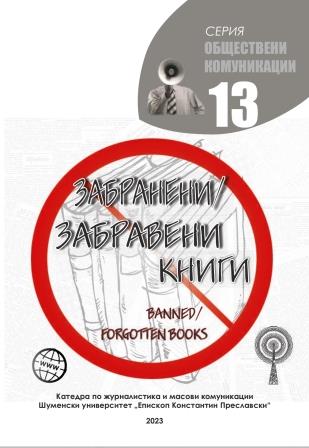НАЈПОЗНАТИЈА ЗАБРАЊЕНА ПРЕДСТАВА И РОМАН У СРБИЈИ
THE MOST FAMOUS BANNED PLAY AND NOVEL IN SERBIA
Author(s): Kornelije KvasSubject(s): Language and Literature Studies, Studies of Literature, Serbian Literature
Published by: Шуменски университет »Епископ Константин Преславски«
Keywords: Censorship; Theater; Novel; Drama; Serbia; Tito
Summary/Abstract: The best-known example of censorship in Serbia is the cessation of the printing of the novel “When the Pumpkins Bloomed” and the banning of Dragoslav Mihailović’s theatre play of the same name. After the fifth performance of the play at the Yugoslav Drama Theater in October 1969, Josip Broz Tito condemned Mihailović’s play in a public speech, considering it an example of enemy propaganda. The political context of the novel and the play is the conflict between Tito and Stalin, which culminated in the severing of political, economic, and cultural relations between the Eastern Bloc and Yugoslavia. Some parts of the novel and drama criticize the attitude of the Yugoslav authorities towards the communists who sided with the Soviet Union. Although their role in the text is secondary, they are highlighted as essential parts of the propaganda against the Yugoslav regime. Banning works of art in an authoritarian social system is a mechanism used to suppress creativity and control the narrative. The consequences of such actions are far-reaching and detrimental to the cultural development of society. This paper aims to shed light on this mechanism and its negative impact on the arts in authoritarian regimes.
Journal: Серия Обществени комуникации
- Issue Year: 2023
- Issue No: 13
- Page Range: 25-37
- Page Count: 13
- Language: Serbian

